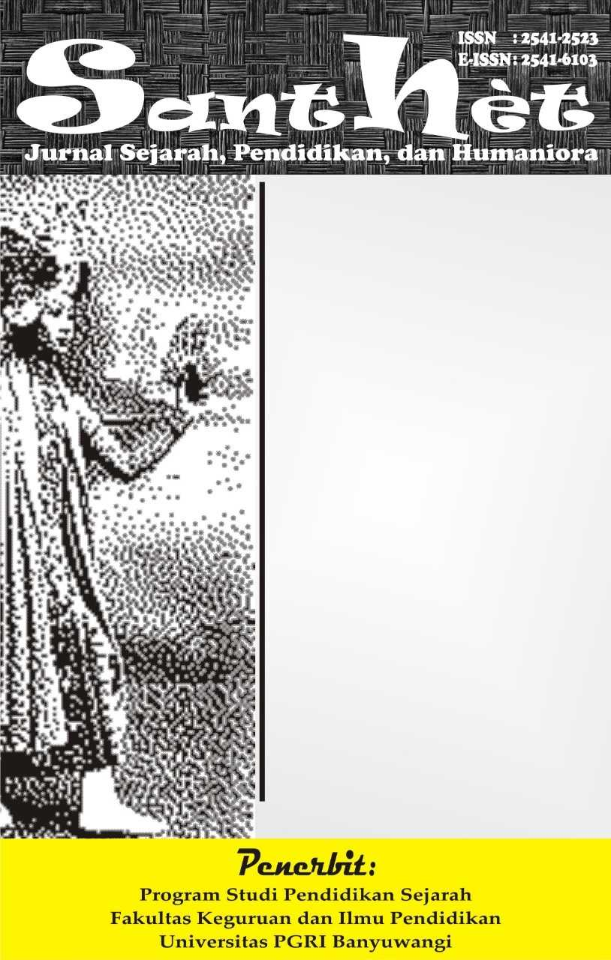FREE EDUCATION POLICY IN INDONESIA: IMPLEMENTATION CHALLENGES AND THE FULFILLMENT OF CITIZENS' CONSTITUTIONAL RIGHTS
Kebijakan Pendidikan Gratis di Indonesia: Tantangan Implementasi dan Pemenuhan Hak Konstitusional Warga Negara
DOI:
https://doi.org/10.36526/santhet.v9i4.5780Keywords:
Constitutional obligation, Education governance, Free education policy, Public policy implementation, Rule of lawAbstract
This study examines the implementation of free education policy in Indonesia from a constitutional law perspective, aiming to assess the extent to which this public policy aligns with the constitutional mandate under Article 31 of the 1945 Constitution. The research adopts a normative juridical approach combined with empirical analysis to evaluate how free education policies are formulated, implemented, and enforced across different regions. Legal documents, regulations, and policy instruments such as the School Operational Assistance (BOS) program and regional regulations were analyzed alongside field data collected through interviews and case studies. Findings reveal a significant gap between constitutional norms and policy practices, as many schools continue to impose informal fees under various forms—contrary to the constitutional guarantee of free and accessible education. Inconsistent interpretations of regulations at the local level, weak institutional capacity, and inadequate oversight mechanisms contribute to persistent violations. The discussion highlights the need for clearer regulatory formulations, stronger enforcement frameworks, and increased legal awareness among citizens and educational stakeholders. Furthermore, the study underscores the importance of civil society participation and effective governance in ensuring transparency and accountability. Based on these findings, the research recommends harmonizing national and regional regulations, strengthening institutional capacity within schools and local governments, and introducing legal mechanisms such as class action suits to enable citizens to claim their constitutional right to free education. Ultimately, realizing the constitutional promise of free education requires a multidimensional and legally grounded approach that prioritizes justice, equality, and public accountability.
References
Bahrul Ulum, M., & Tsalist Wildana, D. (2019). Promoting the Right to Education Through a Card: A Paradox of Indonesia’s Educational Policy? JILS, 4, 143.
Bandur, A., Furinto, A., & Hamsal, M. (2021). 21st Century experiences in the development of school-based management policy and practices in Indonesia. Educational Research for Policy and Practice, 21(1), 85–107. https://doi.org/10.1007/s10671-021-09293-x
Bellamy, R. (2013). Democracy as Public Law: The Case of Constitutional Rights. German Law Journal, 14(8), 1017–1037.
Brewis, E. (2019). Fair access to higher education and discourses of development: a policy analysis from Indonesia. Compare: A Journal of Comparative and International Education, 49(3), 453–470.
Brewis, L. E. J. (2019). Accountability of quality and fair access in Indonesian higher education: policymaker and practitioner perspectives. UCL (University College London).
Cereceda, P. M. (2016). Equality, Non-Discrimination and Inclusive Education: An International and Comparative Constitutional Perspective. Int’l J. Educ. L. & Pol’y, 12, 7.
Darmawan, I. G. N., Suryadi, A., Budimansyah, D., & Susilo, S. (2024). Indonesian Education: Past, Present, and Future. Taylor & Francis.
Edwards Jr, D. B., & Storen, I. (n.d.). PERI Indonesia Study The World Bank and Governance Reforms in Indonesia: Community-Driven Development, School-Based Management, and Low-Fee Private Schools.
Essex, N. L. (2002). School law and the public schools: A practical guide for educational leaders. ERIC.
Hartati, Satoto, S., Dewi, R., & Diar, A. (2025). Illegal levies in education funding in Indonesia: an analysis of experiences from Jambi Province. Cogent Social Sciences, 11(1), 2450293.
Heise, M. (1997). Equal educational opportunity, hollow victories, and the demise of school finance equity theory: An empirical perspective and alternative explanation. Ga. L. Rev., 32, 543.
Ika Sari, G., Winasis, S., Pratiwi, I., Wildan Nuryanto, U., & Basrowi, B. (2024). Strengthening digital literacy in Indonesia: Collaboration, innovation, and sustainability education. Social Sciences & Humanities Open, 10, 101100. https://doi.org/10.1016/j.ssaho.2024.101100
Lasswell, H. D., & McDougal, M. S. (1942). Legal education and public policy: Professional training in the public interest. Yale Lj, 52, 203.
Lawson, M. A., & Alameda-Lawson, T. (2012). A case study of school-linked, collective parent engagement. American Educational Research Journal, 49(4), 651–684.
Lee, H. J. (2022). The Principle of Non-Discrimination and Anti-Discrimination Law. In Discrimination Based on Sexual Orientation: Jurisprudence of the European Court of Human Rights and the Constitutional Court of Korea (pp. 75–120). Springer.
Loubert, L. (2004). Discrimination in education financing. The Review of Black Political Economy, 32(3–4), 17–27.
Maisyaroh, M., Bafadal, I., Ariyanti, N. S., Adha, M. A., Qureshi, M. I., Wiyono, B. B., & Juharyanto, J. (2021). The Principals’ Efforts n Facilitating the Freedom to Learn By Enhancing Community Participation in Indonesia. Jurnal Cakrawala Pendidikan, 40(1), 196–207. https://doi.org/10.21831/cp.v40i1.36119
Romlah, S., Imron, A., Maisyaroh, Sunandar, A., & Dami, Z. A. (2023). A free education policy in Indonesia for equitable access and improvement of the quality of learning. Cogent Education, 10(2), 2245734.
Rosser, A., Joshi, A., & Edwin, D. (2011). Power, Politics, and Political Entrepreneurs: Realising Universal Free Basic Education in Indonesia. IDS Working Papers, 2011(358), 1–34.
Rubin, E. L. (1987). The practice and discourse of legal scholarship. Mich. L. Rev., 86, 1835.
Ryan, J. E. (1999). Schools, race, and money. Yale LJ, 109, 249.
Shaw, M. P. (2022). The public right to education. The University of Chicago Law Review, 89(5), 1179–1244.
Simon-Kerr, J. A., & Sturm, R. K. (2010). Justiciability and the role of courts in adequacy litigation: Preserving the constitutional right to education. Stan. JCR & CL, 6, 83.
Siswadi, G. A. (2024). Education and liberation: A critical study of the humanistic school of pedagogy. EDUCATION, CHARACTER, AND HUMANISTIC PEDAGOGY.
Squelch, J. (2001). Do school governing bodies have a duty to create safe schools? An education law perspective: current issues in education law and policy. Perspectives in Education, 19(1), 137–149.
Stefkovich, J. A., & Frick, W. C. (2021). Best interests of the student: Applying ethical constructs to legal cases in education. Routledge.
Tome, A. H., Muhtar, M. H., Junus, N., & Elfikri, N. F. (2024). Dynamics of implementation of the right to education from an Indonesian legal perspective. 4th International Conference on Social Sciences and Law (ICSSL 2024), 1146–1154.
Trubek, L. G. (2005). Crossing boundaries: legal education and the challenge of the new public interest law. Wis. L. Rev., 455





























